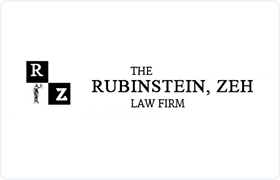 Patchogue Wills & Probate Lawyers, New York
Patchogue Wills & Probate Lawyers, New York
Sponsored Law Firm
-
 x
x

Click For More Info:
-
The Law Firm of Rubinstein, Zeh and Associates
445 Broadhollow Rd. Suite CL-10 Melville, NY 11747» view mapEstate Law Full Service Law Firm
The Law Firm of Rubinstein, Zeh and Associates has built its practice primarily on word-of-mouth among our clients and the trusted referrals from our colleagues.
800-960-1529
Includes: Estate Administration, Living Wills, Wills
Sponsored Lawyers
1-4 of 4 matches
2 Arabian Court
East Moriches, NY 11940
Estate, Wills & Probate, Trusts
Litigation, Wills & Probate, Divorce & Family Law, Household Mold



 Christine Rubinstein Melville, NY
Christine Rubinstein Melville, NY AboutThe Law Firm of Rubinstein, Zeh and Associates
AboutThe Law Firm of Rubinstein, Zeh and Associates Practice AreasExpertise
Practice AreasExpertise

